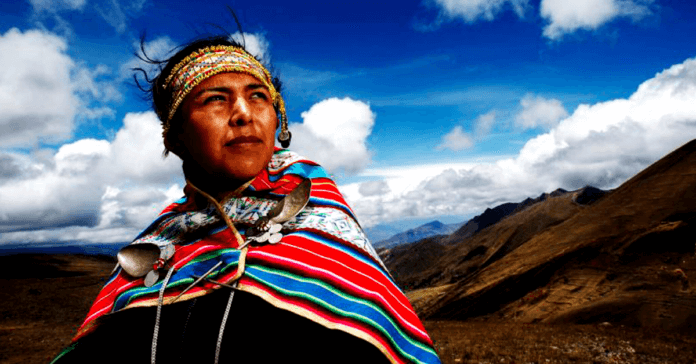Table of Contents
Introduction
Climate change has emerged as one of the most pressing challenges of our time, with far-reaching implications for societies across the globe. Among the groups disproportionately affected by its consequences are indigenous communities. These unique and culturally rich societies face a complex web of challenges due to the changing climate, threatening their way of life, traditions, and connection to their ancestral lands. This article delves into the multifaceted impacts of climate change on indigenous communities, underscores the importance of raising awareness, and outlines strategies to drive meaningful change.
1. The Multidimensional Impact
Indigenous communities, often deeply intertwined with nature, are witnessing drastic shifts in their surroundings due to climate change. This impact manifests in several ways:
- Disruption of Traditional Lifestyles: Indigenous people’s cultural practices and livelihoods are closely tied to their surroundings. Alterations in temperature and precipitation patterns can disrupt hunting, fishing, agriculture, and gathering activities, destabilizing their traditional way of life.
- Loss of Biodiversity: Many indigenous cultures have a profound knowledge of local ecosystems and depend on diverse flora and fauna for sustenance and medicine. Climate change-induced habitat loss and species decline threaten these resources, eroding their cultural heritage.
- Land and Resource Conflicts: Rising temperatures contribute to resource scarcity, intensifying conflicts over land, water, and other essential resources. Indigenous communities often lack legal protections, leaving them vulnerable to exploitation.
- Cultural Erosion: Climate-induced migrations and changes can fracture the social fabric of indigenous societies, leading to the erosion of languages, traditions, and intergenerational knowledge transfer.
2. The Need for Awareness
Raising awareness about the unique challenges faced by indigenous communities is crucial on several fronts:
- Global Solidarity: Acknowledging the impact of climate change on indigenous people fosters global solidarity. Their struggles resonate across cultures, underscoring the interconnectedness of humanity’s fate.
- Policy Advocacy: Informed public discourse drives policy changes. By highlighting the vulnerabilities of indigenous communities, we can advocate for policies that protect their rights, lands, and cultures.
- Preserving Traditional Knowledge: Raising awareness also facilitates the preservation of indigenous knowledge. Recognizing their insights into sustainable resource management and adaptation can inform broader climate strategies.
3. Strategies for Change
Addressing the climate crisis requires collaborative efforts to empower indigenous communities and drive positive change:
- Inclusive Decision-Making: Including indigenous voices in climate policy discussions ensures their concerns are heard and their rights are respected.
- Supporting Resilience: Funding initiatives that bolster indigenous communities’ resilience against climate impacts is essential. This includes access to climate-resilient infrastructure and technology.
- Land Rights Recognition: Securing land and resource rights for indigenous people is pivotal. Recognizing their territorial sovereignty strengthens their ability to protect and manage their lands sustainably.
- Education and Capacity Building: Equipping indigenous youth with climate education and vocational skills helps them adapt to changing realities while preserving their cultural heritage.
- Promoting Sustainable Practices: Collaborating with indigenous communities to promote traditional and sustainable practices can contribute to climate mitigation and adaptation efforts.
4. Building a Sustainable Future
As we strive to combat climate change and uplift the most vulnerable, including indigenous communities is paramount. Their perspectives and experiences offer invaluable insights into climate adaptation and mitigation. By raising awareness and driving change, we take a step towards a more sustainable and equitable future for all.
5. Cultivating Cross-Cultural Understanding
To truly address the impact of climate change on indigenous communities, it’s essential to foster cross-cultural understanding and collaboration. This approach recognizes the interconnectedness of all human societies and the shared responsibility for our planet’s health.
- Cultural Exchange: Promoting cultural exchange programs can help bridge the gap between indigenous and non-indigenous communities. These interactions facilitate the exchange of knowledge, stories, and experiences, fostering empathy and mutual respect.
- Collaborative Research: Engaging in joint research projects with indigenous experts can lead to a deeper understanding of their unique environmental knowledge. This collaboration can result in innovative solutions that blend traditional wisdom with modern science.
- Learning from Indigenous Practices: Indigenous communities have, for centuries, practiced sustainable land management and resource utilization. By learning from their practices, we can incorporate holistic approaches into broader sustainability efforts.
6. The Role of Technology and Innovation
In the digital age, technology and innovation play a pivotal role in addressing climate change and its impacts on indigenous communities:
- Climate Data Collection: Technology aids in collecting crucial climate data, which can help indigenous communities anticipate and adapt to changing conditions.
- Mobile Apps for Resilience: Mobile applications can provide indigenous people with real-time weather updates, early warning systems for disasters, and access to relevant resources.
- Digital Storytelling: Digital platforms offer a space for indigenous people to share their stories, struggles, and traditional knowledge with a global audience, fostering empathy and support.
7. Amplifying Indigenous Voices
In the age of social media and online advocacy, amplifying indigenous voices has never been easier:
- Social Media Campaigns: Initiating social media campaigns can raise awareness about indigenous communities’ challenges and achievements. Hashtags and trending topics can lead to wider visibility and engagement.
- Online Petitions and Advocacy: Online platforms can serve as powerful tools for starting petitions and advocacy initiatives, urging governments and organizations to take meaningful action.
8. Promoting Climate Justice
Climate justice is an integral aspect of addressing the impact of climate change on indigenous communities:
- Equitable Resource Allocation: Climate policies and funding should prioritize the needs of marginalized and vulnerable communities, ensuring equitable distribution of resources.
- Respecting Indigenous Rights: Upholding the rights of indigenous people to their lands, territories, and resources is a fundamental element of climate justice.
9. Education and Empowerment
Educational initiatives have a transformative role in building a more sustainable future:
- Curriculum Integration: Integrating climate change and indigenous perspectives into educational curricula can empower younger generations to understand and act upon these issues.
- Youth Engagement: Encouraging youth involvement in environmental initiatives empowers them to become advocates for change within their communities.
10. Looking Ahead: A Call to Action
In the face of climate change, action cannot be delayed. The well-being of indigenous communities is intricately linked to the health of our planet. Here’s how you can contribute:
- Educate Yourself: Take the time to learn about the unique challenges faced by indigenous communities due to climate change.
- Support Indigenous-Led Initiatives: Contribute to organizations and projects that are led by and support indigenous communities in their efforts to adapt and mitigate climate impacts.
- Advocate for Policy Changes: Use your voice to advocate for policies that prioritize the rights and needs of indigenous communities in the context of climate change.
- Amplify Their Voices: Share the stories and experiences of indigenous communities through your social networks, fostering awareness and empathy.
- Reduce Your Carbon Footprint: Every individual action to reduce carbon emissions contributes to the global effort to mitigate climate change.
Conclusion
The impact of climate change on indigenous communities is an urgent and complex issue that demands our attention and action. By raising awareness, fostering cross-cultural understanding, and amplifying indigenous voices, we can pave the way for effective solutions that benefit all of humanity. As we work towards a more sustainable and just world, let us remember that the resilience and wisdom of indigenous communities can guide us on this shared journey.



